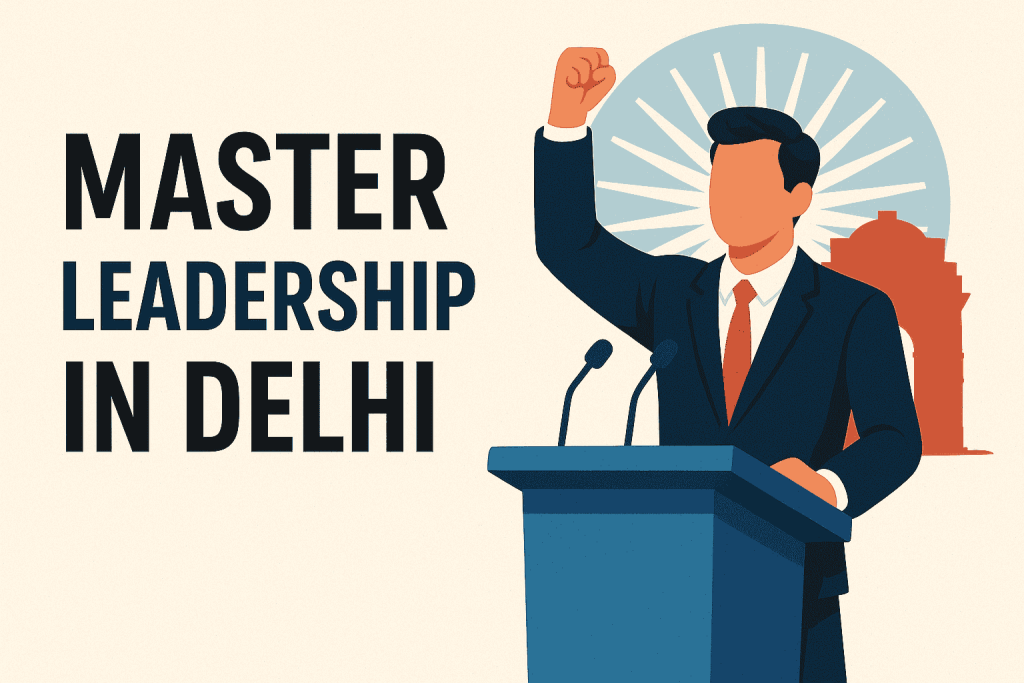
When searching for a certified life coach program price, it’s natural to start by comparing tuition fees. Aspiring coaches want...
In the relentless pulse of modern business, leadership is no longer merely a title; it is a dynamic, evolving skillset that demands continuous refinement. From the bustling boardrooms of Delhi to the innovative start-ups of Bangalore, organizations across India recognize that their most valuable asset is the caliber of their leadership. In this ever-changing landscape, leadership coaching has emerged not as a luxury, but as an indispensable catalyst for individual and organizational transformation.
At its core, professional leadership coaching is a partnership – a powerful, results-oriented alliance between a skilled coach and a leader, designed to unlock latent potential, sharpen strategic thinking, and foster profound personal and professional growth. Rooted in the principles of self-discovery and actionable insights, coaching, much like the philosophy embraced by renowned institutions, focuses on the client’s innate capabilities to find their own solutions, fostering a holistic development that extends far beyond the immediate goal.
This comprehensive guide will delve into the profound impact of leadership coaching, explore its diverse facets, illuminate how to identify the best leadership coaching in Delhi, and provide a roadmap for leaders across all levels to embark on their transformative journey.

The demands on leaders today are unprecedented. They navigate global complexities, manage diverse teams, champion innovation, and foster cultures of resilience – all while striving for sustainable growth. In such an environment, even the most seasoned leaders can benefit from a dedicated space for reflection, challenge, and growth.
At its essence, leadership coaching is a focused, confidential process that helps leaders clarify their vision, identify their strengths, address their developmental areas, and devise actionable strategies to achieve their objectives. Unlike consulting (which provides solutions) or mentoring (which offers advice based on experience), coaching empowers leaders to find their own answers, fostering self-reliance and sustainable change.
One of the primary benefits of engaging with a professional leadership coach is the significant improvement in a wide array of critical leadership skills. This isn’t about rote learning; it’s about experiential growth that translates directly into real-world impact.
Every leader encounters roadblocks. What distinguishes exceptional leaders is their ability to navigate these challenges with grace and strategic foresight. Leadership coaching provides a confidential, non-judgmental space to dissect these challenges and develop tailored solutions.
By providing objective insights and holding leaders accountable, coaching transforms daunting challenges into opportunities for profound learning and growth, ensuring that leaders are not just reacting to problems, but proactively shaping their future.
Beyond the tangible skills, a profound outcome of leadership coaching is the cultivation of an impactful leadership presence. This isn’t about charisma alone; it’s about the ability to inspire trust, command respect, and influence others through your demeanor, communication, and authenticity. It’s what makes people want to follow you.
Coaching approaches the development of leadership presence holistically, often focusing on three interconnected pillars:
Through targeted exercises, role-playing, feedback, and deep self-reflection, a leadership coach helps leaders identify their current presence, pinpoint areas for enhancement, and practice new behaviors in a safe and supportive environment. This iterative process allows leaders to integrate these attributes authentically, transforming their influence and impact.
India’s economic dynamism has fueled a burgeoning demand for sophisticated leadership capabilities. As companies expand globally and local businesses scale rapidly, the need for well-coached leaders has never been more acute.
The Indian business ecosystem, characterized by rapid growth, technological disruption, and a diverse workforce, presents unique challenges and opportunities for leaders. Organizations are increasingly investing in leadership development coaching to retain top talent, foster innovation, and build resilient leadership pipelines. From multinational corporations to homegrown startups, the understanding that strong leadership is the bedrock of sustainable success is firmly taking root. This growing demand has led to a proliferation of top leadership coaching services across major Indian cities.
Delhi, as a major economic and political hub, boasts a vibrant coaching ecosystem. When seeking the best leadership coaching in Delhi, it’s essential to consider several factors to ensure you find a coach who aligns with your specific needs and objectives:
To find a leadership coach in Delhi, consider searching professional coaching directories, asking for referrals within your network, or exploring the websites of established coaching firms with a presence in the city.
While focusing on the best leadership coaching in Delhi, it’s worth noting that the rise of online leadership coaching has broadened access to top talent beyond geographical confines. Many highly effective coaches offer their services remotely, providing flexibility and convenience. This is particularly beneficial if you’re exploring options outside Delhi, or if your schedule demands virtual sessions.
While Delhi is a prime focus, Mumbai and Bangalore also host thriving leadership coaching communities. Mumbai, as India’s financial capital, has a strong demand for executive leadership coaching and corporate leadership coaching. Bangalore, a major technology hub, sees a high demand for leadership coaching for managers and leadership coaching for teams within its dynamic ecosystem. Many national and international coaching firms have a presence or offer services in these cities, providing ample options for those seeking professional leadership coaches across India.
The perception that leadership coaching is exclusively for the C-suite is gradually changing. While premium leadership coaching for CEOs can be a significant investment, there are increasingly affordable leadership coaching options available, making development accessible to a wider range of leaders.
Factors contributing to affordability and different models include:
When looking for affordable leadership coaching, it’s important to balance cost with the coach’s qualifications and fit. A lower-priced but uncertified coach might offer less value than a moderately priced, highly effective one. The key is to find value that aligns with your budget and development goals.
Leadership is not a monolithic concept; it evolves with an individual’s career trajectory and organizational responsibilities. Consequently, coaching has specialized to meet these diverse needs, offering targeted support for leaders at every level.
This highly specialized form of coaching is designed for senior leaders, C-suite executives, and those in critical strategic roles. Executive leadership coaching focuses on macro-level challenges such as organizational vision, strategic planning, stakeholder management, change leadership, and succession planning. It helps executives enhance their influence, navigate complex political landscapes, and lead their organizations through significant transformations. The goal is to maximize their impact at the highest echelons of leadership.
Often the backbone of any organization, managers are crucial for translating strategy into action and nurturing talent. Leadership coaching for managers addresses the unique challenges of their role: team motivation, effective delegation, conflict resolution, performance management, and developing emerging leaders. This coaching equips managers with practical tools to inspire their teams, foster a positive work environment, and drive operational excellence. It’s often intertwined with leadership skills training programs.
This broad category encompasses coaching initiatives implemented at an organizational level, often designed to align leadership behaviors with corporate strategy and values. Corporate leadership coaching can involve a combination of individual coaching for key personnel, group coaching for leadership teams, and bespoke leadership development programs tailored to the company’s specific needs. The aim is to cultivate a consistent and high-performing leadership culture across the entire enterprise.
In today’s collaborative environments, the success of a team often hinges on its collective intelligence and dynamics. Leadership coaching for teams focuses on improving team cohesion, communication, conflict resolution, shared accountability, and collective problem-solving. It helps teams identify their collective strengths and weaknesses, enhance their ability to work together effectively, and achieve shared objectives. This is vital for projects requiring high levels of interdependency.
At the pinnacle of leadership, CEOs face unparalleled pressure and complexity. Leadership coaching for CEOs provides a confidential sounding board, a strategic thought partner, and an accountability mechanism. It addresses challenges such as setting the long-term vision, managing board relations, navigating market disruptions, fostering innovation, and maintaining personal resilience amidst immense responsibility. This level of coaching is often about refining an already powerful leader.
While leadership principles are universal, women leaders often navigate unique challenges, including unconscious bias, stereotype threat, and work-life integration. Leadership coaching for women provides a supportive space to address these specific dynamics, empowering women to articulate their value, negotiate effectively, build strong networks, cultivate authentic presence, and confidently ascend to leadership roles, driving leadership coaching for career growth.
For individuals looking to accelerate their professional trajectory, leadership coaching for career growth offers strategic guidance. This type of coaching helps identify career aspirations, develop a clear roadmap, enhance transferable skills, build a powerful personal brand, and navigate transitions effectively. It can involve preparing for promotions, transitioning into new industries, or stepping into larger leadership capacities.
For those committed to elevating their leadership capabilities or even aspiring to become professional coaches, a structured approach through programs and certifications offers unparalleled depth and credibility.
These comprehensive programs are designed to provide a systematic pathway for leaders to enhance their skills. They often combine theoretical knowledge, practical exercises, peer learning, and individual coaching. Leadership coaching programs might focus specifically on coaching skills for leaders, while leadership development programs typically cover a broader spectrum of leadership competencies, from strategic thinking to emotional intelligence. Many reputable institutions offer these, often culminating in a certificate of completion.
For individuals who wish to demonstrate a high standard of professional competence, pursuing a leadership certification is a powerful step. The most recognized global standard for coaching is set by international coaching federations. Certifications such as those for Associate Certified Coach, Professional Certified Coach, and Master Certified Coach signify rigorous training, extensive coaching experience, and adherence to ethical guidelines. An advanced leadership certification often denotes specialization in a particular area or a higher level of mastery. These certifications not only enhance a leader’s credibility but also deepen their understanding of human dynamics and effective influence.
For those aiming to become professional certified executive coaches themselves, an executive coaching certification is paramount. These programs provide in-depth training on coaching methodologies, business acumen, and the specific challenges faced by senior executives. It equips aspiring coaches with the knowledge and practical skills to deliver high-impact coaching services to corporate clients.
The digital age has revolutionized access to learning. Leadership coaching online courses offer flexible, self-paced, or live virtual learning experiences that cater to busy professionals. These courses can range from foundational leadership skills training modules (e.g., on communication, feedback, or strategic planning) to more advanced topics like leading change or fostering innovation. They are an excellent way to acquire specific skills without committing to a full certification program. Look for courses from reputable universities or well-established coaching academies.
For focused, intensive learning, leadership coaching workshops provide an immersive experience. These are typically short, highly interactive sessions designed to address specific leadership challenges or develop particular skills. They often involve practical exercises, group discussions, and immediate application of concepts, making them ideal for quick skill enhancement or addressing urgent team needs.
A leadership coaching masterclass is an advanced, in-depth learning experience often led by highly experienced or renowned leaders/coaches. These masterclasses delve into nuanced aspects of leadership, offering cutting-edge insights, complex case studies, and opportunities for profound reflection. They are perfect for seasoned leaders looking to refine their philosophy and deepen their impact.
The decision to engage a leadership coach is an investment in your future. Knowing how to find a leadership coach and what to expect from the engagement process is crucial for maximizing its benefits.
The journey begins with identifying potential coaches. Start by:
Once you have a shortlist, the real discovery begins.
When you are ready to hire leadership coach, look beyond just their qualifications. While certified leadership coach and certified executive coach credentials are vital, consider these factors:
Most reputable coaches offer an initial leadership coaching consultation, often free or at a nominal charge. This is a critical opportunity for both parties to assess fit. During this session, you can:
Think of it as a mutual interview – you’re evaluating them, and they’re evaluating if they can truly help you.
While a full, extended “free leadership coaching trial” might be rare for ongoing engagements, many coaches offer introductory sessions or assessments. This could be:
Use these opportunities wisely to gauge the coach’s style and determine if their approach aligns with your needs before committing to a full program.
Once you’ve chosen your coach, the process to book leadership coaching session is typically straightforward:
While both coaching and mentoring are powerful development tools, they serve different purposes:
Many organizations implement both leadership mentoring programs and coaching as complementary strategies for holistic leadership development.
In an era defined by rapid change and unprecedented complexity, investing in leadership coaching is no longer an option but a strategic imperative. For leaders in Delhi and across India, the opportunity to refine their skills, cultivate an undeniable leadership presence, and navigate challenges with newfound clarity is within reach.
Whether you are an aspiring manager seeking to improve leadership skills, an executive striving to elevate your leadership presence, or a CEO aiming for an advanced leadership certification, the transformative power of a dedicated leadership coach is profound. From affordable leadership coaching options to highly specialized leadership coaching for CEOs, the landscape is rich with opportunities for growth.
Embrace the journey of self-discovery and strategic development. Take the proactive step to find a leadership coach, book a leadership coaching session, and unlock the leader you are truly meant to be. The future of your career, your team, and your organization hinges on the strength of your leadership – make it exceptional.

When searching for a certified life coach program price, it’s natural to start by comparing tuition fees. Aspiring coaches want...

Neuro-Linguistic Programming (NLP) is experiencing a resurgence in India. Social media, workshops and high-energy seminars promise instant breakthroughs by rewiring...

Many professionals pursue the title of Certified Organizational Development Coach with the expectation that a credential alone will open corporate...

Some providers offer to fast-track you to PCC status through purely online modules for a fraction of the cost of...

Executive coaching has evolved from a niche service for struggling leaders into a strategic investment for organisations aiming to build...

When prospective coaches research training options, cost is often the first number they look for. A quick internet search produces...

Deciding to invest in life coach training programmes can be a transformative milestone in your personal and professional journey. In...

Choosing the right online life coaching courses can be one of the most transformative decisions you ever make.

The demand for personal and professional growth has never been higher. As more people seek guidance on careers, relationships and...